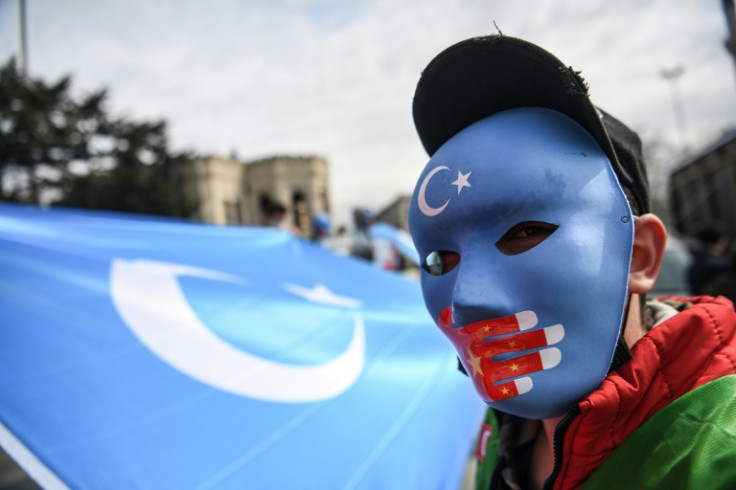China's Xinjiang Violations: EU Proposes Ban On Goods Made With Forced Labor
KEY POINTS
- The EU proposal does not specifically single out any country
- The U.N. recently released a report on human rights violations in China's Xinjiang region
- Despite Beijing's denials, the report documents the use of forced labor in Xinjiang
Driven by concerns about human rights violations in China's Xinjiang province, the European Commission on Wednesday proposed a ban on all goods made using forced labor goods from the EU market.
The proposal aims to "effectively prohibit" all products for which forced labor has been used at "any stage of their production, manufacture, harvest and extraction, including working or processing related to the products," a statement issued by the European Commission said.
The statement added that the prohibition should apply to "all products, of any type, including their components, and should apply to products regardless of the sector, the origin, whether they are domestic or imported, or placed or made available on the Union market or exported."
Although the EU proposal does not specifically single out China, a May 2021 investigation elucidated the use of forced labor in Xinjiang, which produces about 45% of the world's supply of the key component for solar panels.
Terming forced labor "a cruel form of modern slavery," in which millions are trapped worldwide, EU trade chief Valdis Dombrovskis further opined that the goal of the proposed legislation is to "keep the EU market free from products made, extracted or harvested with forced labour."
Previously, EU President Ursula von der Leyen had announced Brussels' intention for a ban during her State of the European Union address in Sep. 2021.
The latest development has come just weeks after the UN human rights chief released a long-awaited report detailing the human rights concerns in the Xinjiang Uyghur Autonomous Region of China.
Despite strong pressure from China not to publish the report, which Beijing called a "farce orchestrated by the U.S. and a small number of Western powers," the U.N. Human Rights High Commissioner released the landmark report after much delay on Aug. 31.
Calling attention to human rights violations against Uyghurs and other Muslim minority communities in China's far-western Xinjiang province, the report points to credible claims of torture and forced labor and warned of crimes against humanity that have taken place in the region.
The report documents the "allegations of torture, sexual violence, ill-treatment, forced medical treatment, as well as forced labor and reports of deaths in custody."
These allegations have for long been reported by human rights groups, Western nations and the Uyghur community members living in exile who have been blaming China for mass forced labor in internment camps.
Beijing condemned the release of the report, calling it a "political tool" aimed at containing the country. China's Ambassador to the U.N. in Geneva, Chen Xu, also said that Beijing would not cooperate with the U.N. Human Rights office.
Denying allegations of abuses in the region, China hit back against the report and termed it "wholly illegal and invalid." Beijing also called the report "planned and manufactured firsthand by the US and some Western forces."
Meanwhile, the Biden administration has announced its plans to enforce a law barring products made with forced labor in China's Xinjiang province, drawing angry reactions from Beijing.

© Copyright IBTimes 2024. All rights reserved.





















